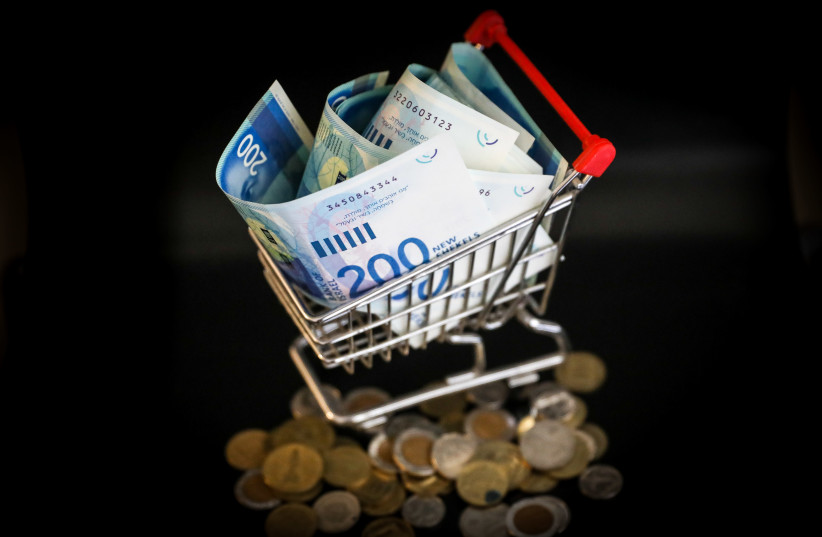WASHINGTON – As the US dollar hit its lowest rate since 1995 on Wednesday, a US Chambers of Commerce executive says that bilateral fundamentals of US-Israel trade ties remain strong.
Joshua Kram is executive director for Middle East Affairs at the US Chamber of Commerce, where he oversees programs and policy initiatives to broaden commercial relationships between the United States and markets in the Middle East. “The chamber set up 10 years ago a US-Israel Business Council to be an advocate on behalf of the bilateral commercial and economic relationship,” he said. “We represent a broad range of American and Israeli companies, and we advocate for a policy that will strengthen the relationship on the commercial side between the two countries.”
According to Kram, the trend of a weakening dollar compared to the shekel is not new. “You've seen the strengthening of the shekel happen over a long period of time,” he said. “A year ago, it was 24 years high, and I know it just crossed the 25-year mark.”
“From my perspective, the bilateral fundamentals of our trade ties are strong,” he continued. “Free trade agreement is more than 35 years old that got rid of most tariffs and other trade barriers. Trade has grown tremendously over the last several decades.”
“I think the strengthening of the shekel points to a strong Israeli economy; the Israeli economy seems to be charging ahead coming out of COVID,” he continued. “And from what I've seen, there's just a lot of capital moving into Israel, buying up shekels to invest in Israeli tech.”

He noted that US companies are “all over” Israel's tech ecosystem with more than 300 US multinational companies that have some sort of R&D activities in Israel. “And while the shekel has strengthened against the dollar, inbound investment certainly hasn't suffered,” he said. “In fact, it seems like this year could be a better year for foreign investment in Israeli tech, even more so than last year.”
“So I think there remains a strong demand and appetite from US industry to invest in Israel. You see major acquisitions, investments, other kinds of activity,” Kram said. “I haven't seen big changes in terms of the trend lines as the shekel has strengthened. I've just seen Israel's economy churn along and continue to attract American companies and American investors.”
He emphasized that he is aware of the concern that because of the low exchange rate, Israeli products are more expensive and aren't going to be as competitive in the US and otherwise. “And I feel for the small and medium-sized companies that are clawing their way out of the pandemic recession to make, sell, and ship products globally,” he said. And I'm sure fluctuations in currency like this can have a significant impact on their bottom line. If you're a small or medium-size Israeli company and the US is your primary market, I have no doubt that that's going to be impactful.”
Kram noted that the Joint Economic Development Group, a bilateral dialogue that takes place annually between the Treasury Department, the State Department and the Israeli Ministry of Finance, is coming up in December. “I'd be very curious to see if [the currency rate] exists as part of the agenda in some way, shape or form. Or, if there's an analysis that the government presents in terms of what the impact is on bilateral trade,” he said.
